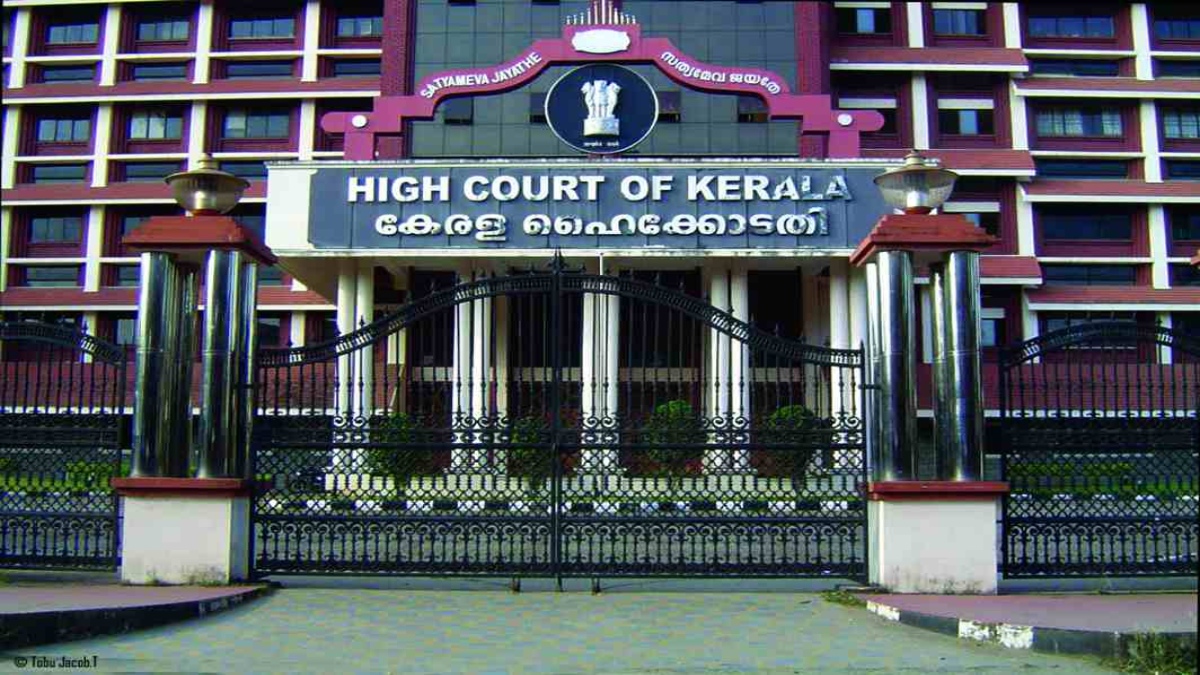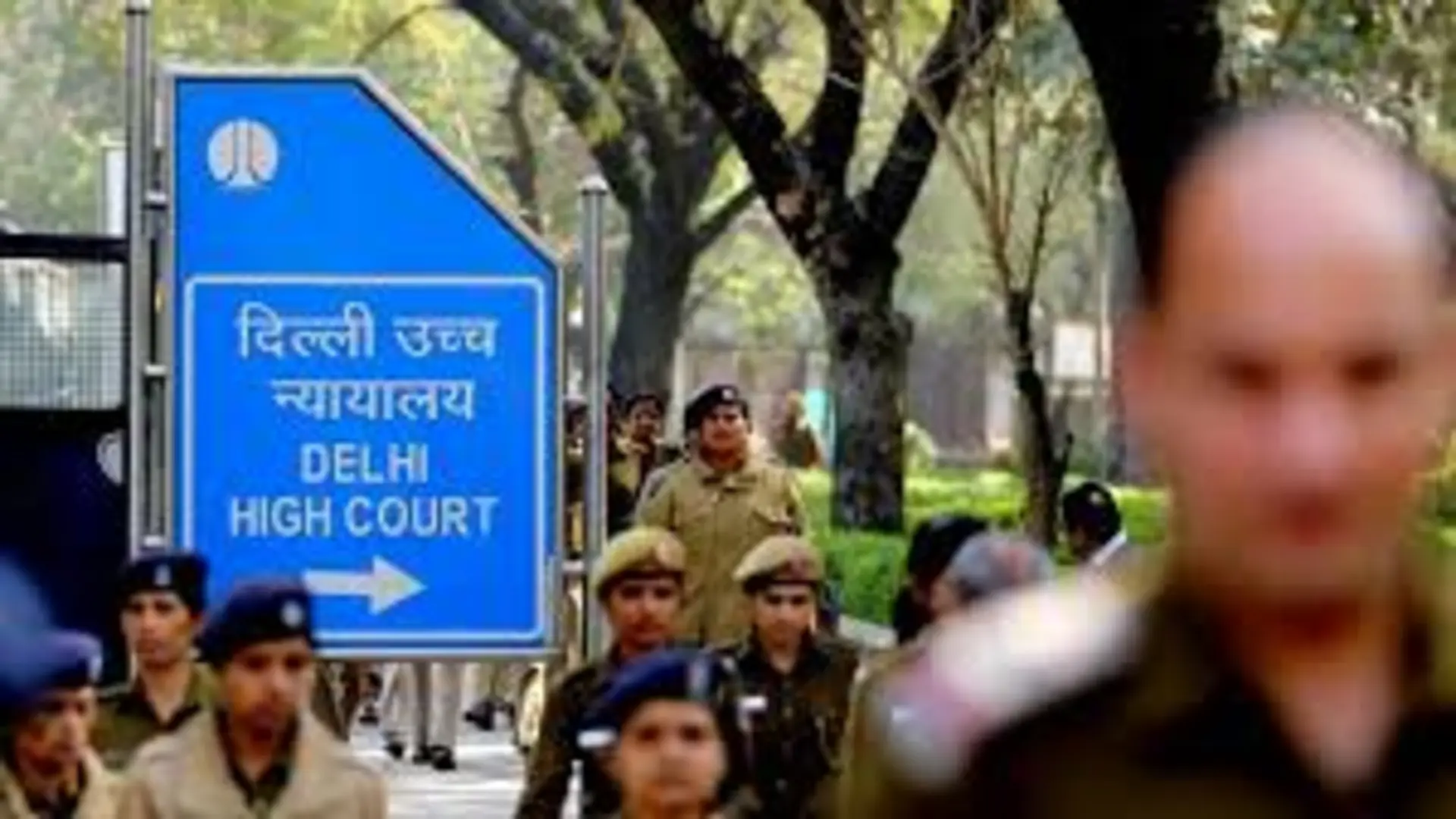It would be in the fitness of things to state right at the outset that in a significant development with far reaching consequences, the Kerala High Court has just recently on 23 March 2021 in a latest, landmark, learned and laudable judgment titled Shiju Joy A vs Nisha in OP (FC) No. 352 of 2020 and connected cases has issued commendable guidelines to streamline and prescribe a uniform procedure for disposal of cases before Family Courts in the State. It must be mentioned that this leading judgment has been passed by a Division Bench of Kerala High Court comprising of Justice A Muhamed Mustaque and Justice CS Dias in a batch of petitions highlighting the hurdles by the parties in resolving their matrimonial disputes. The petitioners had invoked the supervisory jurisdiction of the High Court under Article 227 of the Constitution and had sought for directions to the Family Courts to expeditiously dispose of pending proceedings.
To start with, it is first and foremost pointed out in the opening para that, “We are, in this batch of original petitions, asked to resolve the difficulties caused to the litigants due to the inordinate delay in disposal of cases by the Family Courts in the State. These original petitions speak about the various hurdles faced by the parties in resolving their matrimonial disputes. The petitioners who are parties to different proceedings, have invoked the supervisory jurisdiction of this Court under Article 227 of the Constitution and sought for directions to the Family Courts to expeditiously dispose of pending proceedings. It was a routine practice in this Court to call for reports from the Family Courts and issue directions to dispose of proceedings in a time bound manner. This has caused perceived injustice to many, as those who approach this Court stand in advantageous position in getting their cases disposed of on a priority basis. The delay involved in disposal of cases before the Family Courts cannot be signified for a singular reason. The problems faced are multifaceted and are of different dimensions. Lack of infrastructure, docket explosion, untrained officers and staff, inept case management etc., are a few to list.”
While shedding adequate light on Family Courts and the role of lawyers, the Bench then waxes eloquent to state in para 2 that, “The Family Courts are conceived to deal with conflicts relating to marriage and family affairs with humane consideration. The procedure ordained under the enactment is to help the parties to resolve their disputes in a harmonious way in preference to adversarial litigation. Parties are not entitled, as of right, to be represented by a legal practitioner before the Family Courts. The lawyers, who are trained in adversarial litigation, do not want to shed their role as adversarial counsel in matrimonial disputes. The rules and procedures formulated for Family Courts are often forgotten in the process. The objects and reasons in establishing Family Courts, to deal with matrimonial disputes, with informal setting are to break the shackles of rigid rules and procedures followed in civil courts. Many of the Judges as well as lawyers are not really equipped to handle family disputes befitting to the standards required under law, which adds to the cause for the delay.”
Needless to state, the Bench then spells out rightly the ground reality in para 3 that, “The parties who approach the Family Courts with their grievances, with a hope to get speedy justice, very soon realise that their problems burgeon, cases multiply, and their ordeal unabatedly continues due to the adversarial nature and circumstances surrounding the litigation.”
More alarmingly, the Bench then also points out in para 4 that, “The State of Kerala, which accounts for 3% of Country’s population, has one of the highest numbers of matrimonial cases in the Nation. The statistics available with the NJDG gives a clear picture of the story. At present, there is a staggering 104015 cases pending in the 28 Family Courts in the State. This data is alarming and if at all not shocking; it speaks about the disintegration of the family culture and the anomie our society is facing. We had a structured society in the past where everyone held hands to resolve such conflicts. Today, we witness alienation or aloofness of individuals from the larger family, society and the community as a whole. Disputes soar to fierce battles combated through the adversarial litigation. Causes are projected to establish one’s rights sans their obligations, forcing the Family Courts to drift its role as conceived under law and to embark the lines of a normal court.”
While citing the relevant case law, the Bench then points out in para 5 that, “A three-Judge Bench of the Honourable Supreme Court in K.A. Abdul Jaleel v. T.A. Shahida [(2003) 4 SCC 166], while highlighting on the purpose of bringing in the Family Courts Act by the legislature, opined thus:
“It has come to the notice of the Court that on certain occasions the Family Courts have been granting adjournments in a routine manner as a consequence of which both the parties suffer or, on certain occasions, the wife becomes the worst victim. When such a situation occurs, the purpose of the law gets totally atrophied. The Family Judge is expected to be sensitive to the issues, for he is dealing with extremely delicate and sensitive issues pertaining to the marriage and issues ancillary thereto. When we say this, we do not mean that the Family Courts should show undue haste or impatience, but there is a distinction between impatience and to be wisely anxious and conscious about dealing with a situation. A Family Court Judge should remember that the procrastination is the greatest assassin of the lis before it. It not only gives rise to more family problems but also gradually builds unthinkable and Everestine bitterness. It leads to the cold refrigeration of the hidden feelings, if still left. The delineation of the lis by the Family Judge must reveal the awareness and balance. Dilatory tactics by any of the parties has to be sternly dealt with, for the Family Court Judge has to be alive to the fact that the lis before him pertains to emotional fragmentation and delay can feed it to grow. We hope and trust that the Family Court Judges shall remain alert to this and decide the matters as expeditiously as possible keeping in view the objects and reasons of the Act and the scheme of various provisions pertaining to grant of maintenance, divorce, custody of child, property disputes, etc.”
In yet another case law, it is then stated in para 6 that, “In Bhuwan Mohan Singh v. Meena and others [(2015) 6 SCC 353] the Honourable Supreme Court observed that the delay in adjudication of the cases by the Family Courts is not only against human rights but also against the basic embodiment of dignity of an individual.”
While underlining the seriousness of the situation, the Bench then envisages in para 7 that, “Keeping in mind the above observations and as we are not to remain oblivious and mute to this perennial issue and being convinced that the procedure followed by the Family Courts is not working well, we alerted the Sensitization Committee of this Court headed by its Chairman, Mr. Justice A.K.Jayasankaran Nambiar, who immediately convened a virtual meeting of the Committee and the Presiding Officers of the Family Courts in the State. We were also invited. We could feel the stress and pressure of the Presiding Officers of the Family Courts who are burdened with a huge backlog. Some of the Family Courts are compelled to board more than 200 cases a day in an attempt to clear the arrears. The delay in disposal of the cases has resulted in large number of interlocutory applications being filed on day-to-day basis. We apprehend that the backlog is leading to a collapse of justice delivery system, which stands portrayed in the large number of original petitions being filed before this Court seeking for the speedy disposal of the proceedings.”
Significantly, the Bench then remarks in para 8 that, “We directed the Registrar (District Judiciary) to call for reports from all the Presiding Officers of the Family Courts, to give their suggestions and remarks, in order to streamline a uniform procedure for the disposal of cases pending before the Family Courts. A report with the statistics has been placed on board.”
More significantly, the Bench then further minces no words to remark in para 9 that, “After considering the report of the Registrar (District Judiciary), the statistics of the cases pending before the Family Courts, particularly the backlog of 5 year plus cases, we are of the considered opinion that it is time for this Court to issue directions to streamline a uniform procedure for the disposal of cases before the Family Courts. Merely because a litigant has reasons or the resources to approach this Court for speedy justice, the same cannot be at the peril of those adhering to the queue. We have felt that the ritualistic passing of directions for speedy disposal of proceedings is doing more harm than good to the system because contested and deserving cases are being left unattended and the procedure framed by the Family Courts for disposal of cases is getting unsettled. Untimely interventions are clogging the system. The procedure and rules envisage professional management of matrimonial disputes. Such management needs to be exhibited at all levels starting from filing of proceedings till the decree is satisfied. Therefore, we deem it fit to direct the Family Courts to follow the outlines in this judgment.”
Finally and far most significantly, what forms the backbone of this extremely brilliant, brief, bold and balanced judgment which every person must read is then stated in para 10 that, “The supervisory jurisdiction of this Court impels us to issue directions to streamline the procedure as conceived under law to avoid failure of justice. Failure of justice in this context is to be understood to the non-adherence of rules which ensures the right of the disputants to get timely justice. These normative and procedural outlines, which are illustrative in nature, shall be scrupulously followed by the Family Courts.
Accordingly, we dispose the original petitions by directing the Family Courts to strictly comply with the following directions:
Step 1(i): A. NOTIFYING CHIEF MINISTERIAL OFFICER: All Presiding Officers of the Family Courts are directed to activate the office of the Chief Ministerial Officer (‘CMO’ for short). The notification issued by the High Court of Kerala dated 10.3.2015 notifying the Rules called the Kerala Civil Courts (Case Flow Management) Rules, 2015 (in short ‘Case Flow Management Rules’) enables the Courts to authorise any officer to exercise the power of the Chief Ministerial Officer of the Court. The Presiding Officers are therefore directed to authorise the most competent Ministerial Officer as the CMO for the purpose of case flow management.
B. FUNCTIONS AND DUTIES OF CMO: On institution of proceedings, the CMO shall fix the date for appearance of the respondent(s). On appearance of the respondent(s), the parties be referred for counselling, which shall be in consultation with the Presiding Officer. The date and time for appearance of the respondent(s) shall be specified in the summons issued to the respondent(s) in Form No.1 of Rule 5 of the Family Courts (Kerala) Rules, 1989. The CMO shall fix specified timings for counselling between the parties to a case(s) in a day and allot the matter to the concerned counsellor, who in turn, shall on a daily basis submit report of each day’s work to the CMO. A cap of a maximum 10 cases in a day shall be fixed for each counsellor.
C. INSISTENCE OF MEMO TO FURNISH DETAILS OF CASE PENDING: When a case is presented before the CMO, the CMO shall insist that the parties to file a memo furnishing the details of the connected cases between the same parties pending before the Court. If such details are furnished, the CMO shall tag the cases.
D. EXPARTE/UNCONTESTED MATTERS: The CMO shall post uncontested cases and cases where the respondent(s) remain absent immediately before the Court. Similarly, the CMO shall post joint petitions filed for divorce by mutual consent before the Court, if the parties fulfil the conditions laid down by the Honourable Supreme Court in Amardeep Singh v. Harveen Kaur [2017 (4) KLT 367].
E. CLASSIFICATION OF CASES FOR COUNSELLING: Only suits or proceedings filed for decrees of nullity, dissolution of marriages, judicial separation, restitution of conjugal rights, maintenance, guardianship, custody and access to minors need be referred for counselling, unless otherwise directed or felt necessary by the Presiding Officer.
F. CASES FIT FOR MEDIATION AT FIRST INSTANCE: In suits or proceedings for declaration as to validity of marriage, property, injunction and legitimacy of a person etc, the CMO shall refer the parties directly to mediation.
G. DISPUTE/S NOT SETTLED IN COUNSELLING: If parties are referred for counselling and the dispute does not get settled, the CMO shall call for a meeting of the parties and fix a date for referring the parties to mediation. The CMO shall also fix a date for the report of mediator with an outer time frame of 60 days after obtaining a formal order from the court. Further time can be extended only in accordance with Rule 19 of the Civil Procedure (Alternative Dispute Resolution) Rules, 2008.
H. CONTESTED CASES: In cases where the mediation proceeding is unsuccessful, then the CMO shall call for a meeting of the parties and fix the date of hearing of the proceeding in Court. While fixing the date for hearing in the Court, the CMO shall adhere to the time prescribed in accordance with the Case Flow Management Rules. The CMO shall, in consultation with the Presiding Officer, fix a timeframe in accordance with the Case Flow Management Rules, to dispose of the case. If the cases are jointly tried, all such cases shall be disposed of within the time as specified for highest track. However, taking note of huge pendency of cases, we permit the Family Courts to fix date and period for disposal of freshly instituted proceedings after reckoning the period required for disposal of the pending matters. The dates shall be fixed after appearance of both sides and in consultation with both parties. Lawyer(s) or authorized representatives shall be allowed to appear before the CMO.
Step 1 (ii): COUNSELLING: The counsellor shall follow the procedure as referred in Rule 26 of Family Courts (Kerala) Rules, 1989 while holding the counselling session. During the course of counselling, if the counsellor is of the view that an Expert’s assistance is required, the parties shall be referred to a competent Expert from the panel formed by the Presiding Officer. If the counselling session is adjourned, fixing the next date shall be in consultation with the CMO. Separate timings shall be given for each party for counselling in a given day, so as to avoid crowding in the counselling centres and the parties getting frustrated by waiting at the court premises which is not congenial for counselling. The role of counsellor in the Family Courts is to handle the person(s) and not the disputes. Matters related to custody, nullity, dissolution etc., are required to be dealt with by the counsellor in a competent manner, as it involves emotions of person(s) involved in such disputes. The counselling date and time shall be fixed according to the convenience of the parties.
Step 2 (i): Judicial time is wasted for roll calls. In view of our directions to activate the CMO’s office to deal with routine matters regarding posting, reference to mediation, counselling etc., we are of the considered view that the Presiding Officers of the Family Courts shall bestow their attention only on matters where the Courts have to pass judicial orders. Therefore, the Family Courts, in normal circumstances, are directed to only list the following matters namely:
i. Execution proceedings.
ii. Interlocutory applications where urgent orders are required.
iii. Cases listed for trial and hearing in the special list. iv. On the day of listing, as envisaged under Section 9 of the Family Courts Act, the Presiding Officer shall make an endeavour to persuade the parties to arrive at a settlement, failing which the court shall proceed with the trial on day to day basis. It would be appropriate that the Presiding Officer interacts with the parties in the Chambers before the commencement of trial or at least during the course of the trial.
A. SPECIAL LIST SYSTEM IN FAMILY COURTS: The Family Courts shall implement the special list system followed in the civil courts. Cases which are ripe for trial shall be included in the list in accordance with the seniority as on the date of institution of the case. A minimum of 2-4 cases shall be listed for trial in a day and 2-4 cases be listed for final arguments. The CMO shall fix the date for trial of pending cases ripe for trial in advance, with the approval of the Presiding Officer.
B. EXECUTION: Family Courts shall make every endeavour to dispose execution petition if there is no stay from superior courts, within the time provided for disposal of such cases in the Case Flow Management Rules.
C. EXECUTION OF MAINTENANCE ORDER: The procedure for execution of maintenance orders, other than the orders passed under Chapter IX of the Code of Criminal Procedure read with Sub-Section (2) of Section 7 of the Family Courts Act, 1984, shall be done as expeditiously as possible in accordance with the procedure laid down under the Code of Civil Procedure.
D. CRIMINAL EXECUTION PETITIONS: Execution Petitions filed for enforcement of orders passed under Chapter IX of the Code of Criminal Procedure read with Sub-Section (2) of Section 7 of the Family Courts Act, 1984, need not be called in Court, unless hearing and judicial orders are required. The Court shall take necessary steps for the expeditious disposal of such applications, if no valid defence is raised.
E. MAINTENANCE THROUGH BANK ACCOUNT: For the payment of maintenance amounts, the decree holders/petitioners falling under category B and C cases mentioned above shall furnish their bank account details to the CMO to enable the judgment debtors/respondents to pay the monthly maintenance through the electronic bank transfer methods like NEFT/RTGS. The parties need only file memos evidencing and acknowledging the payments. If the practice is adopted by the parties, the execution petitions need not be called in Court, expect where a party commits default or a dispute is raised. The parties are also at liberty to adopt the same procedure for execution of money decrees.
F. APPOINTMENT OF NODAL OFFICERS FOR EXECUTION OF WARRANTS: Necessary directions shall be issued by the Presiding Officer to appoint Nodal Officers in Revenue and Police Departments under the control of the District Collector and District Police Chief respectively, to monitor the execution of arrest warrants and distress warrants in execution of orders passed under Chapter IX of the Code of Criminal Procedure.
G. INTERIM CUSTODY OF CHILDREN: In matters relating to custody of children, the concern of the court shall be the best interest and the welfare of the child. At the first instance, before considering the prayer for interim custody, the Presiding Officers shall interact with the parties and the child, if needed. The Family Courts shall keep in mind the directions of the Honourable Supreme Court in Yashita Sahu v. State of Rajasthan and Others [(2020) 3 SCC 67] while deciding an application for interim custody, access, visitation rights and contact rights. If the Family Courts feels that familiarization of the child with a parent is required, it shall pass orders to ensure that the child is familiarized with the parent who is denied custody till final adjudication of the matter. The essence of brevity in such orders is for clarity and to avoid wastage of judicial time. Keeping the above objectives in mind, the Family Courts shall make every endeavour to pass interim orders accordingly.
H. INTERIM ORDERS: We have come across several interim orders passed by the Family Courts having the effect of the final orders/judgments, especially in matters relating to custody and visitation rights of children. It is elementary that the purpose of passing an interim order is, inter alia, to restrain property from being wasted/damaged/alienated, preserve the subject matter or to enforce one’s rights or to discharge the other’s obligation relating to dispute pending final adjudication.
I. TIME PERIOD FOR DISPOSAL OF INTERIM APPLICATIONS: It would be appropriate that all interlocutory applications are disposed within four weeks after appearance of the parties, if not, specific reasons shall be stated.
Step 2 (ii): (I). NATURE OF PROCEEDINGS TO RECORD ORAL EVIDENCE:
A. APPOINTMENT OF ADVOCATE COMMISSION: If both parties agree, the Family Court may appoint an Advocate Commission to record the oral evidence of parties and their witnesses.
B. If the Presiding Officers record the evidence, the court shall follow the procedure as contemplated under Section 15 of Family Courts Act i.e., to record or cause to record only the memorandum of substance of what the witness deposed. This again would avoid unnecessary wastage of time in recording matters which are not relevant to the issues involved in the proceeding.
C. It is also open for the Family Courts to record evidence of persons, wherever such evidence is of formal character, through affidavit of such persons.
II. VIDEO CONFERENCING: When an application is filed to record the evidence through Video Conferencing, the Family Courts, if it feels so, shall allow such application following the Video Conferencing Rules approved by the Full Court of the Kerala High Court (yet to be notified by the Government) and the law laid by the Honourable Supreme Court in State of Maharashtra v. Dr. Praful B.Desai [(2003) 4 SCC 601] and Santhini v. Vijaya Venketesh [2017 (4) KLT 415 (SC)]. The Registrar (District Judiciary) shall make available a copy of the Video Conferencing rules along with this judgment to all the Presiding Officers.
III. CONSOLIDATION AND JOINT TRIAL: After a case is ripe for trial, wherever possible, the Family Courts shall order the consolidation and joint trial of all the proceedings between the same parties.
Please read concluding on link4din.com/guardians-numeric-wisdom
Step 3(i) A. PENDING MATTERS: The Presiding Officers shall take immediate steps to refer all pending cases to mediation, if not referred so far. All other pending cases shall be listed for trial only in accordance with their seniority as on the date of institution of the proceeding and keeping in mind the volume of pending cases.
B. LOK ADALATS: It would be appropriate for the Family Courts to convene Adalats in consultation with District Legal Services Authority for settling all pending proceedings which are ripe for trial at least on quarterly basis.
C. ADVANCED HEARING: Family Courts are permitted to depart from the procedure afore-noted on a motion made by a party for early hearing of a case(s) for any justifiable or valid reason. If any party desires to move an application for early hearing, he/she shall move the Family Court at the first instance. The Family Court shall dispose of such application, as expeditiously as possible, at any rate within two weeks from the date of moving such application. It would be open to the Family Court to pass orders on such applications in the chambers. This court need not entertain any original petitions, filed under Article 227 of the Constitution of India, for early disposal of cases, unless the parties move the concerned Family Court at first instance.
D. SENIOR CITIZEN: In cases involving senior citizens, if the Family Court is of the view that the outcome of such cases will have direct impact on the rights of the senior citizen, the Family Court shall make every endeavour to dispose such cases within the outer limit of six months of appearance of parties.
The above directions shall be implemented with effect from 1st of June, 2021. The Family Courts are directed to place a report before the Registrar (District Judiciary) by 31/12/2021 with regard to compliance of the above directions.”
Definitely, by all accounts, it is one of the most commendable judgments that has issued many laudable, landmark and learned directions as discussed aforesaid to streamline a uniform procedure for the disposal of cases before the Family Courts. All the lower courts of Kerala are certainly bound to follow them as the Kerala High Court has issued them with clear directions in this regard. At the national level also, in all the states such commendable directions needs to be implemented uniformly! It will definitely provide the litigants the much needed relief which they require also and in the same vein also go a long way in ensuring the early disposal of cases!























